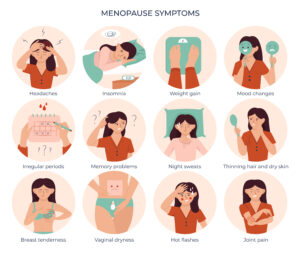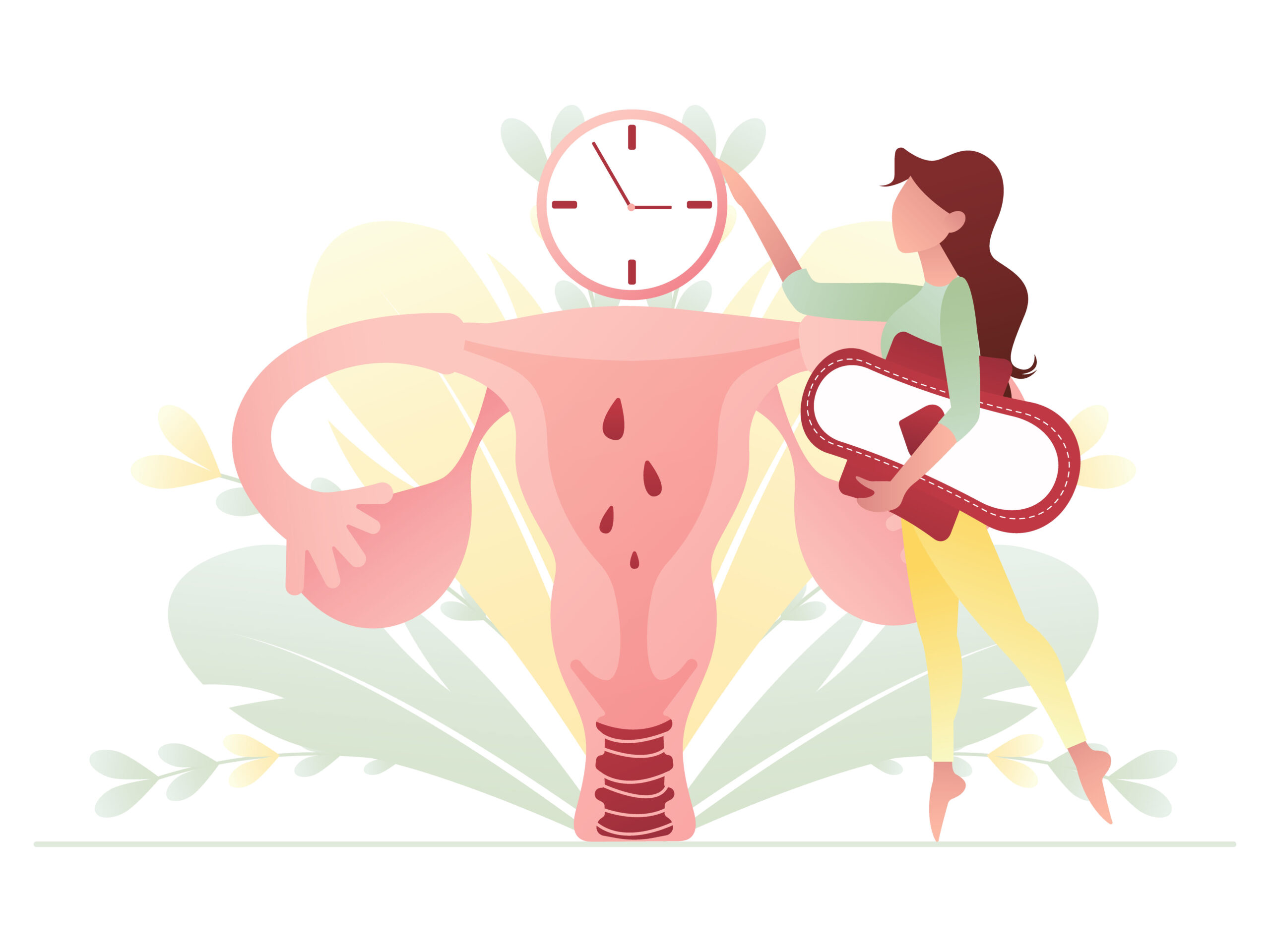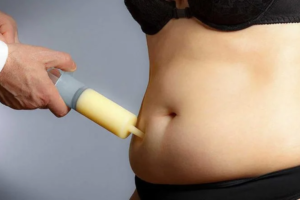Menopause occurs twelve months subsequent to the last menstrual period of a woman. The years preceding perimenopause, during which women may experience heat flashes, menopausal swings, and other symptoms, are referred to as the menopausal transition or perimenopause. The onset of menopause typically transpires between the ages of 45 and 55.
Understanding Menopause Symptoms:
Menopause is characterized by the cessation of menstrual cycles. After a period of 12 months without a menstrual cycle, the condition is diagnosed.
When does menopause typically occur?
The majority of women undergo menopause between the ages of 45 and 55, a physiological process that occurs with the passage of time. Menopause is induced by the induction of ovarian follicular dysfunction and a reduction in the levels of circulating oestrogen. Menopause can be a progressive process, typically initiated by alterations in the menstrual cycle.
What are the three menopausal stages?
Perimenopause, menopause, and post-menopause are the three fundamental phases that comprise menopause. Osteogenesis, the process by which the ovaries produce the hormones oestrogen and progesterone, which regulate the menstrual cycle, commences during this period.
The menopause involves:
The absence of menstruation for a continuous period of 12 months without any causative factors such as pregnancy, medication, or illness constitutes menopause. After the onset of menopause, pregnancy is no longer possible.
Although 51 is the mean age of menopause, there is considerable variation in this age group. While some reach this stage around the mid-forties, others do not do so until the mid-fifties.
After menopause:
The postmenopausal phase signifies the conclusion of one’s reproductive years. During the period when oestrogen and progesterone levels are low in the ovaries, ovulation and menstruation cease to occur.
After the onset of post-menopause, one remains in that phase indefinitely. It is not uncommon to persist with the same symptoms that characterized perimenopause and menopause for an extended period of time following the last menstrual cycle. These symptoms, fortunately, tend to diminish with time.As a result of the decreased oestrogen levels, however, this stage is associated with an increased risk of cardiac disease and osteoporosis in females.
What Men Should Know About Menopause?

Extreme heat bursts.
Nighttime perspiration.
Mood fluctuations.
A loss of memory occurs.
A decline in concentration.
Experiencing trouble resting.
Vaginal desiccation.
It is critical to provide support, counselling, and relaxation at work and in one’s personal life.
Is a natural progression of menopause preferable?
Menopause does not have to be a period of agony and distress. Merely incorporating appropriate nutrient sources into one’s daily diet is one method of effectively managing the symptoms associated with menopause. Even brief daily yoga stretches or strolls can contribute to the alleviation of menopause symptoms.
The good news is that symptoms of menopause can frequently be managed through a healthy diet, regular exercise, and lifestyle changes, regardless of the stage of the condition. Additionally, specific medications when required
Which five pillars comprise menopause?
A holistic approach to menopause that incorporates the following five pillars: diet, exercise, relaxation, sleep, and purpose. Common symptoms include anxiety, mood fluctuations, hot flashes, and night sweats, among others. A collection of targeted reflexology techniques designed to assist women throughout the menopause, perimenopause, and beyond.
Which exercise is most beneficial for menopause?
Engaging in enjoyable activities such as walking, cycling, doing vigorous garden work, swimming, using cardio equipment or attending group fitness classes is crucial for achieving success. Engaging in regular physical activity has the potential to enhance one’s overall health.
Yoga, meditation, and exploring new locales are all effective methods for alleviating mood disorders and promoting relaxation.
Menopause diets should consist of foods that are rich in calcium and protein and are readily digestible. Adequate hydration and nutritious snacks in small portions will be of assistance.
Which nutrients cause the postponement of menopause?
A substantial consumption of fruits and vegetables can extend the reproductive lifespan and postpone the initiation of menopause due to the antioxidants they contain, which mitigate the detrimental impacts of reactive oxygen species on ovarian follicle quantity and quality.
Conclusion: Treatments might consist of:
- Pharmaceuticals used to treat or prevent osteoporosis
- Taking antidepressants in low doses.
- Oestrogen therapy administered vaginally is the most efficacious approach to alleviate vaginal atrophy and menopausal heat flashes.
- Vaginal RF treatments, among others, are administered in clinic settings to address conditions such as vaginal dryness, SUI, and intimate sexual function.
- Utilizing CO2 lasers for vaginal and suicidal rejuvenation Carboxytherapy.







